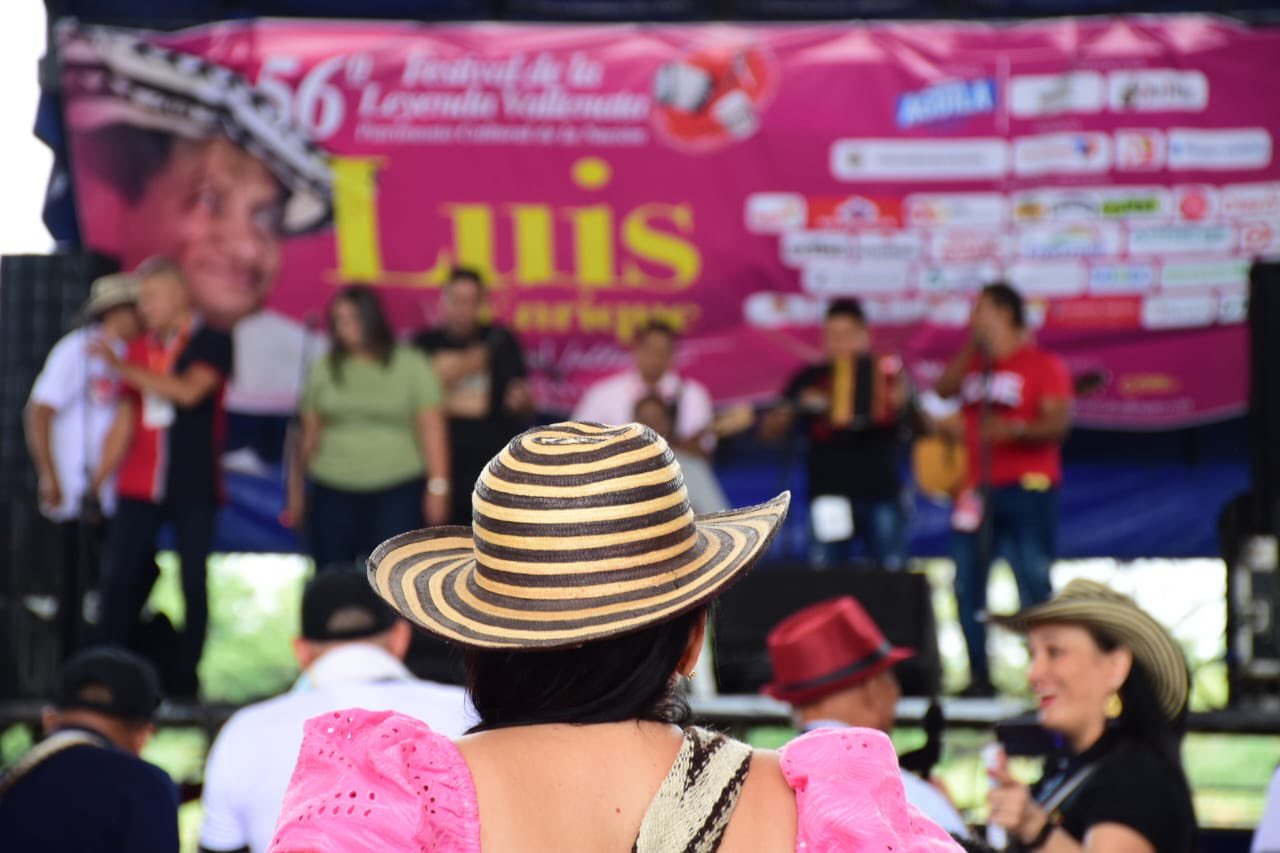This Friday, April 28, the category finally began Unpublished Vallenato Song at the 56 Vallenato Festival. About 50 composers they took the stage with their group with the aim of moving on to the next round.
of the almost 60 compositions, interpreted from eight in the morning at the Coliseo de Ferias Pedro Castro Monsalvo, 35 were walks, 13 merengues, 7 sones and 4 puyas.
It was sung to love, especially that of the couple, children and parents; to the butterflies that fly and conquer love in other people’s towns; to the passing of the years and how cruel old age is; to the Sierra Nevada de Santa Marta and Valledupar, but above all, to Luis Enrique Martínez, ‘El Pollo vallenato’, who is the honoree at this Vallenato Festival.
The composers always got on stage, next to the singer, interpreting and gesturing each of the lyrics of their songs. The objective was to infect the public and the jury, which always remained inflexible.
With applause and shouts of “that is”, the bars of applause tried to influence, honestly, the three jurors, who, despite everything, remained undaunted. They neither approved nor rejected the compositions. They only gesticulated like friendly and neutral zero judges, while they took notes that were impossible to decipher.
THE PAST AND WHAT WAS
In addition to talent, the common denominator of the day was nostalgia. If not all, most of the competitors were carried away by the phrase that everything in the past was better and demanded the disappearance of the San Juan moon, which one day went out among the worries of the world because nobody sat down to contemplate it.
Another composer wondered what had happened to the fascination of those parrandas at the time when the Vallenato Festival was broadcast on the radio and in black and white.
because as described Armando Antonio Carbonell in his walk, “Life is like the wind, which passes and sweeps you away, but then calm comes.” Another composer recited, in an unsigned autobiography, that “Pretty things are left behind, waiting for what surprise old age will bring.”
There were also spaces for symbolism and struggles. Messages that everyone understood without the author saying a word or complaining. Like the journalist Félix Carrillo, who in an event with few precedents, presented a group made up of 7 women. They sang to the world their song ‘Fall in love, woman’, a walk that invites you to leave fear behind, to take the risks that love implies.
THE DYNASTY AND THE BROTHERHOOD
When the presenter, from the stage, asked Diomedes Dionisio Diaz going on stage, there was a relative calm in the coliseum of fairs. A calm full of expectation for a surname that represents too much for folklore.
The son of Diomedes Díaz took the stage and performed the merengue ‘Las canciones de Luis Enrique’. With the authority of his last name, he gave himself permission to speak for ‘El Pollo’, who more than 27 years ago he left this worldto send thanks to Carlos Vives for internationalizing his music.
Almost without exception, the unpublished songs followed some unwritten rules that dictate that the good vallenato sings to the beauty of the woman, to the anecdotes of friends, to the magic of the Sierra Nevada de Santa Marta, to the freshness of the river Guatapurí, and travels from the highest point of La Guajira to the hot towns of Bolívar bordering the Magdalena River.
Among so much poetry and nostalgia, some preferred to sing to peace, exactly to reconciliation, the previous step. The singer exclaimed, raising his hands: “Oh, oh, oh, brother, put down your weapons and let’s seek reconciliation”. Because Vallenato music is also an invitation to live in peace.
BROTHERHOOD
In the midst of the tyranny of the accordion, the caja and the guacharaca that dominates Valledupar these days, the category coordinator gave way to a group of llanera music and joropo dancers. It was an act of musical brotherhood. A bond that was strengthened at the inauguration of the Vallenato Festival, when 3 of the invited musicians were from the llaneros.
With their dance they showed the power of their land; with their words they recognized the power of vallenato; and with their lyrics they confirmed that the minstrelsy in the eastern plains is similar to the Caribbean region: only the landscape, the protagonists and the harp instead of an accordion change.
By Deivis Caro
[email protected]
